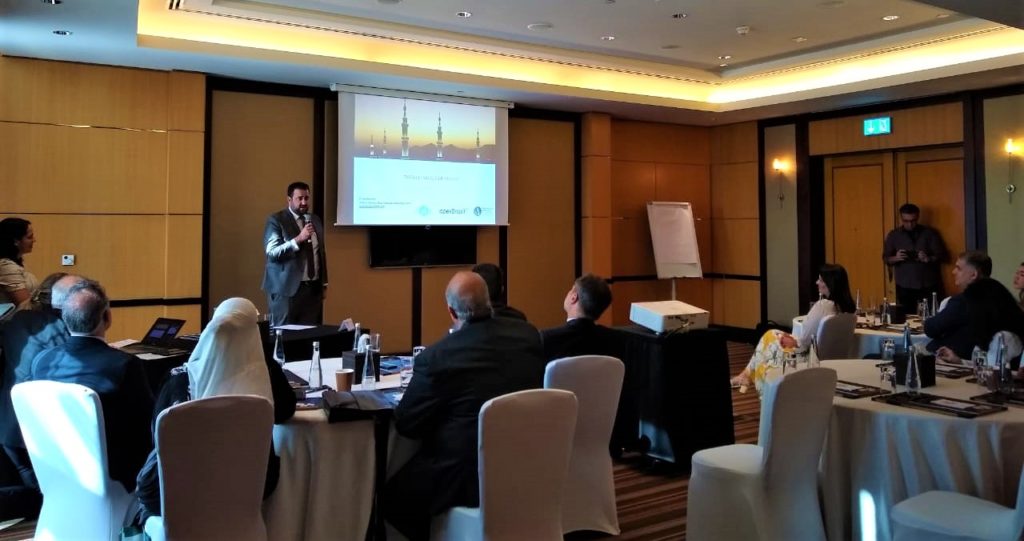Dubai – The economic and demographic growth trend of the Muslim population has improved the prospects of the global halal market. The certification that attests that a product is fit for Muslim consumption was the topic of the workshop “How Halal Will Boost the Internationalization of Your Brand” in Dubai on Tuesday (21).
One of the lecturers, Tomas Guerrero, director of the Halal Trade and Marketing Centre, explained how the halal system works and pointed out some factors that stimulate the growth of the sector. “One of [them] is the Muslim population growth. In the GCC [Gulf Cooperation Council], for instance, this population is set to grow even further. Another aspect is the economic growth of [Muslim-majority] emerging economies above the global average,” he explained.
The workshop is part of the Halal do Brasil Project set forth by the Arab Brazilian Chamber of Commerce (ABCC) together with the Brazilian Trade and Investment Promotion Agency (ApexBrasil). In addition to the workshop, the events on the sidelines of the food trade show Gulfood also include a networking cocktail.
- Brazilians bring from chocolate to peanuts to Gulfood 2023
- Halal do Brasil events to be held on sidelines of Gulfood
- Canned açaí drink shortlisted for Gulfood Innovation Award
Opening the event, ABCC secretary-general & CEO Tamer Mansour also pointed out the relevance of expanding the reach of halal in Brazil beyond beef and poultry, an industry the country is already the world’s leading producer and exporter. ApexBrasil Agribusiness manager Paula Soares also spoke in the opening, while Rafael Solimeo, head of the ABCC international office in Dubai, closed the event.
For Ashraf El Tanbouly, CEO of the Islamic Chamber Of Halal Services (ICHS), the halal sector is huge and still holds good opportunities. “It’s a market open to all. So, it is important to bring manufacturers and traders together so that they meet each other,” he said.
The workshop also featured representatives from the ABCC halal committee, Ahmad Saifi from certifier CDIAL Halal, and Dib Tarras from FAMBRAS Halal. The committee was launched earlier this month to be a market-oriented think tank aimed at creating content and helping spread knowledge about the technical and marketing aspects of halal.
Safi highlighted the good timing when the Halal do Brasil project started. “The country is established. But the market has grown, and we can’t sleep on the job. We have to ensure that our market is the largest but alto the most complete and better done,” he pointed out.
Tarras stressed that the halal products are relevant both in retail and industry. “The entire productive chain grows and develops through halal. The halal market is powerful, even in countries that are new to the sector like the United States,” he said.
For Alan Oliveira, founder of Pantanal Trading, who attended the event, the information helped confirm the importance of this market. “We manufacture items like cosmetics, coffee and fruits in Brazil. With this information in hand, we at Pantanal will certainly change some processes,” he said.
Translated by Guilherme Miranda








